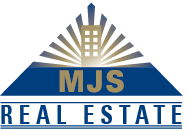
What is a lease audit?
A lease audit is basically a process designed to identify occupancy cost savings.
With most commercial leases (office, industrial and retail space), tenants must, in addition to the fixed base rent, pay an additional rent amount that theoretically represents their proportionate share of the realty taxes and operating costs of the building in which their premises are located.
The audit of commercial lease rental charges, known as a lease audit, is an in-depth review carried out to ensure that tenant occupancy costs are calculated in compliance with the provisions of the lease. A lease audit process seeks to ensure that rental charge calculations respect the various lease clauses and should this not be the case, to identify and recover any excess charges from the landlord.
A lease audit could thus be defined as a strategy to achieve occupancy cost savings used by diligent commercial tenants to recover overpaid rent amounts and control operating costs.

The reasons for a lease audit:
Uncover the dark side of your rent
Simply put, because your landlord no doubt owes you money!!!
Without exception, every single lease audit mandate entrusted to MJS by a client resulted in the recovery of overpaid rent charges!!!
At the start of every mandate, we always ask by how much the landlord has overcharged his tenant and not if he has overcharged. Commercial tenants would do well to acknowledge that overbilling of rental charges is a widespread reality in today’s real estate market
Concentration of Power and Lack of Supervision.
Imagine this… The landlord bills the base rent, oversees the measurement of the leased premises and building, manages the operations, hires and pays for the services of tradesmen, calculates and bills additional rent, and so on. He controls every aspect of a building’s management and administration, as well as all lease provisions, but is rarely subject to a lease audit by a tenant’s representative. This concentration of power in the hands of landlords combined with a lack of surveillance from which they benefit from, has allowed landlords to “help themselves”, much like when we go to an “all you can eat buffet”!
Complexity of the Leases
Commercial leases are voluminous legal documents drafted in a sophisticated legal jargon. The varied lease clauses related to rental charges are complex and very difficult to interpret and administer.
Unfair Play
Landlords have expert knowledge and a thorough understanding of their properties, the real estate market and lease administration practices. Tenants are therefore at their mercy.
Misinterpretation of Clauses
Even though additional rent clauses are drafted with the utmost care, the nature of these provisions can lead to different interpretations, depending on each party’s understanding. Since lease clauses are always administered by landlords, they are often interpreted at the tenant’s expense.
Standardized Billing
Most of the time, landlords’ accounting staff does not take the time to fully understand every lease under management. They simply bill tenants additional rent charges according to the landlord’s standard leases, and this even if a lease includes specific clauses and exceptions added following tenants’ difficult negotiations with the landlord.
Rental charges are generally among companies’ top operating expenses. Good lease management by tenants means more than paying rent on time, paying the annual adjustment of additional rent as billed by the landlord, exercising rights and fulfilling lease obligations within the deadlines specified in the lease. Good lease management requires a very specific and rare expertise. Companies wishing to go through a corporate reorganization or migrate to a new information technology will not hesitate to consult external tax or IT specialists and rely on the advice and guidance thus received to successfully complete their projects. A similar rationale must be applied to the expertise of lease audits. Very few companies, even those with commercial real estate professionals on their payroll, can pretend to internally possess such an expertise. In fact, the majority of our clients do have employees who are real estate experts, yet they still turn to MJS for help with lease audits and other services. It also bears noting that lease audits require significant time and resources that most companies do not have.

The benefits of a lease audit:
To save you lots and lots of money.
A lease audit obviously allows tenants to benefit from immediate and often very substantial rent savings, by notably recovering overpaid rent charges from their landlord. In addition to this immediate savings, a lease audit can also provide other non-negligible advantages. For example:
Future Cost Reduction
The impact of errors identified during a lease audit will often cover a period of several years in the future. This will in turn result in lower future occupancy costs for the tenant if the lease term does not expire in the short term, or on the contrary, if the lease is renewed or extended.
Powerful Negotiating Tool
If a lease audit is performed at a strategic time during the term of the lease, it could prove a powerful negotiation tool for the tenant, allowing him to obtain concessions from the landlord that the latter would have otherwise not been prone to concede. These include better lease conditions and more affordable rental rates on renewal, an exclusivity clause, cancellation right before the end of the term, relocation rights, and lease assignment or retrocession of excess space.
Improved Control & Governance
After an initial lease audit, landlords generally expect leases to be audited (by the same tenant) within a relatively short timeframe. They will thus tend to administer tenant leases less aggressively in the future, in order to uphold their reputation and business relationships with tenants. In other words, the execution of a lease audit mandate levels the playing field between the parties and compels the landlord to show more respect for the tenant’s control environment and governance practices.

Rent billing errors:
More frequent than you think.
Various types of rental billing errors can emerge during a lease audit. These can be intentional or accidental, honest or dishonest, predictable or unpredictable. Here are a few examples:
Dimensions & Measurements
Dimensions and measurements: use of measurement methods that do not comply with lease provisions; overestimating the dimensions of a tenant’s leased premises; underestimating the total rentable area of a building; overestimating a tenant’s proportionate share; measurement certificates that are erroneous and/or not certified by an independent qualified professional; erroneous categorization of building spaces, etc.
Expenses Increase
Gross-up of certain expenses that may vary depending on a building’s vacancy rate: gross-up right not granted in the lease; use of an erroneous gross-up rate; calculation errors; gross-up applied on expenses that are not impacted by vacancies; etc.
Double-dipping Recoveries
Double-dipping recoveries: wrongful interpretation/calculation of management fees; recovery of landlord’s overhead costs in addition to the 15% administration fees provided in the lease; non-deduction of costs attributable and billed to specific tenants; non-deduction of costs recovered from insurance claims or supplier warranties; etc.
Specific Exclusions
Specific exclusions: costs included in additional rent despite being specifically excluded as per the lease provisions.
Capital Projects
Capital projects: cost fully included in the additional rent for the year in which it was paid instead of being capitalized and amortized over its useful life; use of an amortization period shorter than the useful life of an acquired asset; unauthorized addition of interest charges on the unamortized balance of a capital cost; calculation errors on depreciation and/or interest charges; use of a higher interest rate than what the lease provides for, etc.
Accounting Errors
Accounting errors: year-end accrual overstatement; cut-off errors; erroneous interpretation of Generally Accepted Accounting Principles, etc.
Real Estate Complex
Real estate complex (many adjacent buildings) or mixed-use buildings (office and retail): erroneous cost allocation between buildings or their components; cost imputation errors; non-allocation of common costs; allocation of non-common costs; use of a uniform additional rent calculation method for all components, etc.
Definition of Building’s Common Area
Definition of building’s common area: inclusion of costs that are excluded from the definition of “building” or “common areas”; inclusion of external costs, etc.
Electricity Costs
Electricity costs: illegal profits derived by rebilling the leased premises’ utility consumption; unauthorized addition of administrative fees on electricity costs; calculation errors regarding internal tax credits; failure to distinguish between the utility costs of leased premises and common areas; gross-up of the utility costs of common areas, etc.
Send us your lease today!
We know how to find savings for your commercial, office and industrial space.


